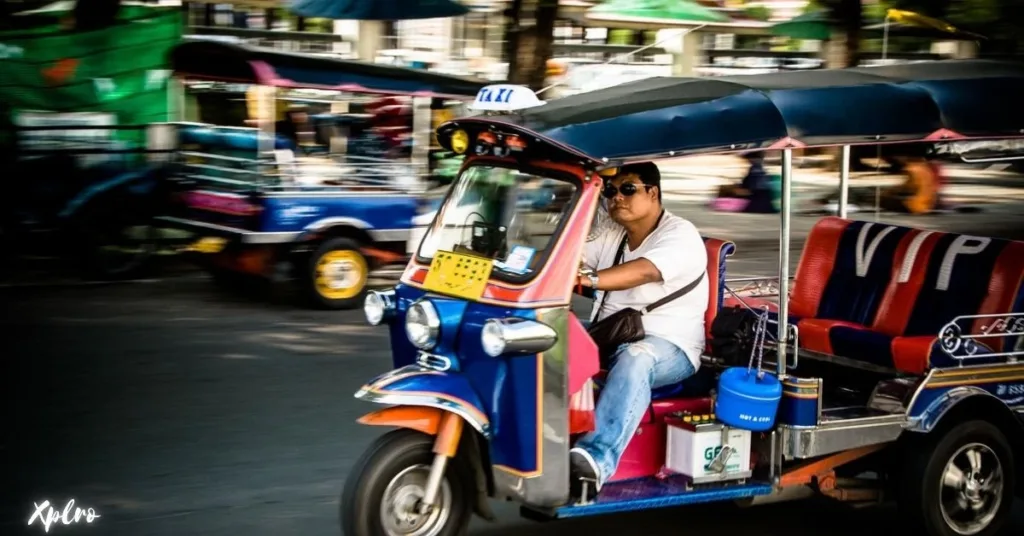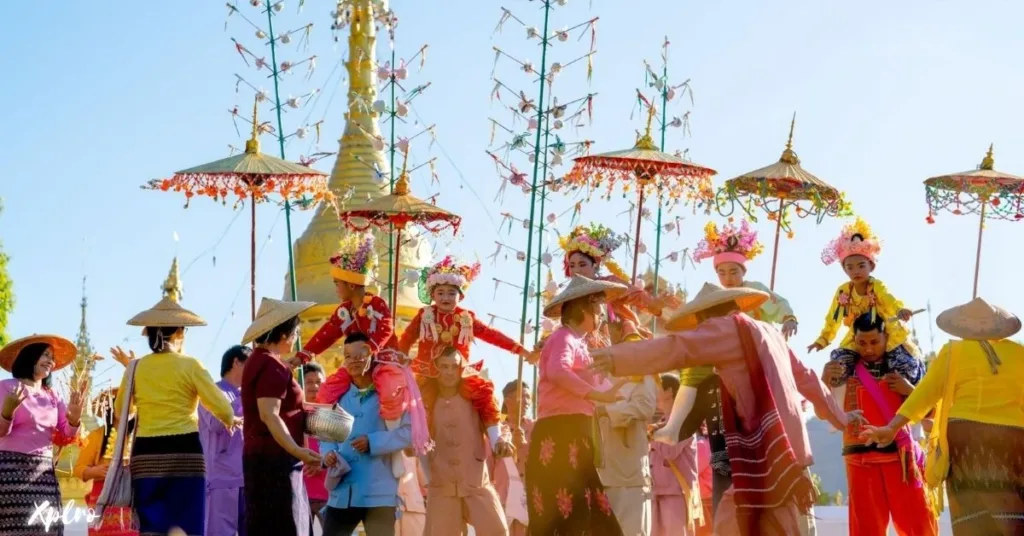Is Solo Travel in Thailand Safe; Thailand, the Land of Smiles, is a popular destination for solo travelers. It offers a mix of bustling cities and tranquil islands. But, like any travel destination, safety is a concern. This guide will help you understand the safety aspects of solo travel in Thailand and provide practical tips to ensure a worry-free trip.
We’ll delve into key safety considerations, offer firsthand experiences, and provide simple advice to help you navigate your journey with confidence.
- 1. Overview of Solo Travel in Thailand
- 2. General Safety in Thailand
- 3. Safety for Solo Female Travelers
- 4. Navigating Thai Transportation
- 5. Scams to Watch Out For
- 6. Health and Safety Tips
- 7. Solo Traveler Etiquette and Local Customs
- 8. Best Destinations for Solo Travelers in Thailand
- 9. Connecting with Fellow Travelers
- 10. Emergency Contacts and Resources
- FAQs
1. Overview of Solo Travel in Thailand
Thailand has always been a popular choice for solo travelers. The friendly locals, affordable prices, and well-developed tourist areas make it an attractive destination. Most visitors feel welcome in Thailand, with many places specifically designed for solo travelers.
2. General Safety in Thailand
While Thailand is generally safe, it’s important to be aware of common risks like pickpocketing and scams, especially in popular tourist areas. Violent crimes against tourists are uncommon, but staying alert is always a good idea.
Here are some tips to stay safe:
- Keep your valuables hidden. Don’t flash your money or jewelry around.
- Use secure bags. Choose bags with zippers and pockets that are hard to access.
- Pay attention to your surroundings. Be aware of what’s happening around you, especially in crowded places.
3. Safety for Solo Female Travelers
Thailand is generally safe for women traveling alone. However, it’s wise to take some precautions:
- Dress modestly, especially in rural areas.
- Avoid walking alone late at night.
- Trust your gut feeling when interacting with strangers.
Popular safe destinations for women include:
- Chiang Mai: Known for its friendly atmosphere.
- Koh Samui: A relaxed and tourist-friendly island.
4. Navigating Thai Transportation

Thailand has efficient public transportation options, but it’s important to be aware of a few things:
- Tuk-Tuks: These are fun but often overpriced. Always negotiate the fare before getting in.
- Buses and Trains: These are generally safe, but keep an eye on your belongings.
- Taxis and Ride-Sharing Apps: Stick to official taxi services or reliable apps like Grab.
- Motorbike Taxis: Unless you’re experienced with local traffic, it’s best to avoid these.
5. Scams to Watch Out For
Be aware of these common scams:
- The “Closed Attraction” Scam: A local might claim a popular temple or attraction is closed and offer to take you somewhere else. Always verify this information yourself.
- Fake Tour Operators: Book your tours through reputable companies to avoid scams.
- Overcharging: Before using services like tuk-tuks or getting a massage, check the prices beforehand to avoid being overcharged.
6. Health and Safety Tips
Food and Water Safety:
- Drink bottled water: This is the safest way to stay hydrated.
- Enjoy street food: It’s a great way to experience Thai cuisine. Choose busy stalls where food is freshly cooked and turns over quickly.
Medical Precautions:
- Consult a travel clinic: Before your trip, visit a travel clinic to get necessary vaccinations.
- Pack essential medications: Carry a basic first-aid kit with your regular medications.
- Know local healthcare facilities: Familiarize yourself with the location of the nearest clinics or hospitals.
7. Solo Traveler Etiquette and Local Customs

To ensure a respectful and harmonious experience in Thailand, it’s important to understand and follow local customs:
- Dress modestly: Especially when visiting temples or rural areas.
- Learn basic Thai phrases: Even a simple “hello” (Sawasdee) can go a long way in showing respect.
- Respect Buddhist traditions: Avoid touching monks, especially if you’re a woman.
8. Best Destinations for Solo Travelers in Thailand
- Bangkok: A bustling city with vibrant street markets, a thriving nightlife scene, and plenty of historical and cultural attractions.
- Chiang Mai: A more laid-back city, perfect for those seeking peace and tranquility. It’s also a popular destination for digital nomads, offering a slower pace of life and a rich cultural heritage.
- Phuket and Krabi: These provinces are famous for their stunning beaches, crystal-clear waters, and a wide range of water sports. They offer a lively social scene, making them great for solo travelers looking to meet new people.
- Pai: A small town nestled in the mountains, Pai is ideal for those seeking relaxation and natural beauty. It’s a great place to unwind, explore nature, and connect with like-minded travelers.
9. Connecting with Fellow Travelers
Solo travel doesn’t mean you have to be alone! There are plenty of ways to connect with other travelers and locals:
- Stay in hostels: Hostels are great for meeting fellow travelers from around the world.
- Join group tours: Many tour companies offer solo-friendly tours, allowing you to explore with others while still having your own independence.
- Attend local events: Festivals, cooking classes, and cultural events are excellent opportunities to meet locals and other travelers.
10. Emergency Contacts and Resources
Emergency Contacts in Thailand:
- Tourist Police: 1155 (English-speaking)
- General Emergency: 191
- Medical Emergency: 1669
Remember to have your embassy’s contact information handy.
Stay Safe and Enjoy Your Trip!
Conclusion: Is Solo Travel in Thailand Safe?
Thailand, the Land of Smiles, beckons solo travelers with its friendly locals, delicious street food, and stunning beaches. Xplro.com, your one-stop travel companion, knows Thailand offers a generally safe and enriching environment for adventure. While staying informed and aware is key in any travel destination, Thailand is no exception. With a little respect for local customs, you can ensure an unforgettable and safe journey. Embrace the adventure, take some simple precautions outlined in this guide, and get ready to experience the warmth and hospitality that make Thailand a top pick for solo travelers worldwide! Visit Xplro.com to start planning your Thai adventure today!
FAQs
1. Is Thailand generally safe for solo travelers?
- Thailand is widely regarded as a safe destination for solo travelers. With its well-established tourism infrastructure and friendly locals, most visitors find the country welcoming and secure. While petty crimes like pickpocketing can occur in crowded tourist areas, incidents of violent crime against tourists are rare. As long as you stay aware of your surroundings and take basic precautions, you can enjoy a safe journey through the Land of Smiles.
2. Is it safe for solo female travelers in Thailand?
- Solo female travelers generally find Thailand a safe and rewarding destination. The locals are typically respectful, and the tourism industry is accustomed to serving solo travelers. However, it’s wise to take some precautions, such as avoiding isolated areas at night, dressing modestly in rural or religious settings, and being cautious in social situations. Many women report positive experiences traveling alone in Thailand, especially in popular tourist spots like Chiang Mai, Koh Samui, and Bangkok.
3. What common scams should I watch out for in Thailand?
- Travelers in Thailand should be aware of a few common scams. One involves locals claiming that a popular tourist site is closed and suggesting an alternative (often involving a commission or overpriced service). Another frequent scam involves fake tour operators offering deals that seem too good to be true. To avoid falling victim to these, always verify information independently and book tours through reputable agencies. Overcharging by taxis and tuk-tuks is also common, so it’s best to agree on a fare beforehand or use a ride-hailing app like Grab.
4. Are tuk-tuks safe for solo travelers?
- Tuk-tuks are generally a safe and fun way to get around, but they come with some caveats. The fare is often higher than other transportation options, so it’s important to negotiate the price before starting your journey. It’s also best to avoid using tuk-tuks late at night, especially if you are traveling alone. For a more predictable and secure experience, consider using taxis with meters or ride-hailing apps, which can offer fixed rates and a record of your trip.
5. Is public transportation safe in Thailand?
- Public transportation in Thailand is mostly safe and reliable. Buses, trains, and ferries are widely used by both locals and tourists. While traveling, it’s a good idea to keep a close eye on your belongings, particularly on overnight buses or crowded trains, where petty theft can occur. Overall, public transport is an affordable and effective way to explore the country.
6. How can I ensure my personal belongings stay safe?
- Keeping your belongings secure in Thailand is largely a matter of vigilance. It’s best to use anti-theft bags or backpacks, and avoid carrying large amounts of cash or valuable items with you. When staying in accommodations, use the provided safe to store important documents and electronics. In crowded areas, such as markets or public transport, stay alert to avoid pickpocketing incidents.
7. Is the water safe to drink in Thailand?
- Tap water in Thailand is not recommended for drinking, so it’s best to stick to bottled water, which is widely available and inexpensive. You can also use a water purifier or filtration bottle for added safety. Ice from reputable restaurants and hotels is usually made from purified water and is generally safe to consume. When eating street food, check for cleanliness and opt for stalls with high customer turnover.
8. What areas should I avoid when traveling solo?
- Most tourist areas in Thailand are safe, but it’s best to exercise caution in certain situations. Avoid walking alone in poorly lit or isolated areas, especially at night. Red-light districts can also present higher risks, so it’s wise to be extra vigilant if visiting these areas. As a solo traveler, sticking to well-traveled paths and staying informed about local conditions will help ensure a safer experience.
9. How can I meet other travelers safely in Thailand?
- Meeting fellow travelers in Thailand is quite easy and safe if you take the right approach. Staying in hostels or guesthouses can provide social opportunities, as they often have common areas and organized events. Joining group tours or participating in activities like cooking classes or yoga retreats can also connect you with like-minded travelers. Online platforms and travel apps are useful tools for finding events and meeting people, but always meet in public places for safety.
10. What should I do in case of an emergency?
- In case of an emergency in Thailand, contacting the Tourist Police at 1155 is your best option, as they provide assistance in English. It’s also important to know the local emergency numbers, such as 191 for general emergencies and 1669 for medical assistance. Keeping the contact information of your country’s embassy or consulate handy is a good precaution, as they can offer support in serious situations.
11. Are there cultural customs I should be aware of?
- Respecting Thai cultural customs is crucial for a positive experience. When visiting temples, dress modestly by covering your shoulders and knees. Avoid pointing your feet at people or religious objects, as this is considered disrespectful. Public displays of affection are generally frowned upon, especially in rural areas. Learning a few basic Thai phrases, such as greetings and thank-yous, can also go a long way in building rapport with locals.
12. Is travel insurance necessary for solo travel in Thailand?
- Travel insurance is highly recommended for solo travelers in Thailand. It provides essential coverage for unexpected situations such as medical emergencies, theft, or trip cancellations. Having insurance offers peace of mind and ensures that you won’t face significant financial burdens if something goes wrong during your trip.






